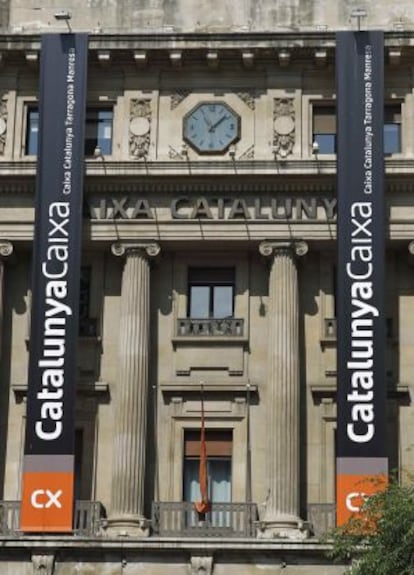State loses €11.5 billion on sale of Catalunya Banc to BBVA
Failed lender was bailed out by Orderly Bank Restructuring Fund following poor management


BBVA, Spain’s second-largest bank, has bought bailed-out lender Catalunya Banc for slightly over €1.18 billion, significantly more than what competing buyers Santander and CaixaBank were offering for the deal.
But the final price tag means losses to the Spanish state of €11.8 billion, an amount that comes close to the cuts that the government has made to health and education spending during the economic crisis (€13.8 billion to 2013).
Catalunya Banc, once Spain’s fourth-largest savings bank, was receiving direct state aid work €12 billion, with an additional €572 million added by the Orderly Bank Restructuring Fund (FROB) to sell its toxic mortgage portfolio.
Yet the state will only get €783 million from the sale because it only controls 66 percent of Catalunya Banc.
For BBVA, the acquisition will increase its market share in the Catalan region by 11 points. The bank already owns Unnim, a merger of the former savings banks Sabadell, Terrasa and Manlleu. With Catalunya Banc, BBVA’s market share in Catalonia becomes 23 percent, closer to CaixaBank and its 32.9-percent share. BBVA chairman Francisco González has called Catalonia “a key region for our growth.”
The state will only get €783 million from the sale because it only controls 66 percent of Catalunya Banc
The move has two additional advantages for BBVA: the purchase price was below the saving bank’s €2.6 billion in equity, and Catalunya Banc has €3.5 billion in deferred tax assets.
Catalunya Banc, which has €63.5 billion in assets, is the result of the merger of Caixa Catalunya, Caixa Tarragona and Caixa Manresa. “Following an irresponsible policy of credit expansion between 2004 and 2008,” in the words of FROB chief Antonio Carrascosa, the lender sustained huge losses that led to bankruptcy.
Adding to the controversy was the fact that former president Adolf Todó received a compensation package of €600,000 when he left the failed lender, besides a pension scheme that could reach €4 million.
Spain has made progress in cleaning up its troubled banking sector since 2012, when it was forced to ask the European Union for a €41.4-billion loan to recapitalize several of its weakest lenders. Regional savings banks in particular were highly exposed to the real estate market, which crashed with the economic crisis of 2008.







































